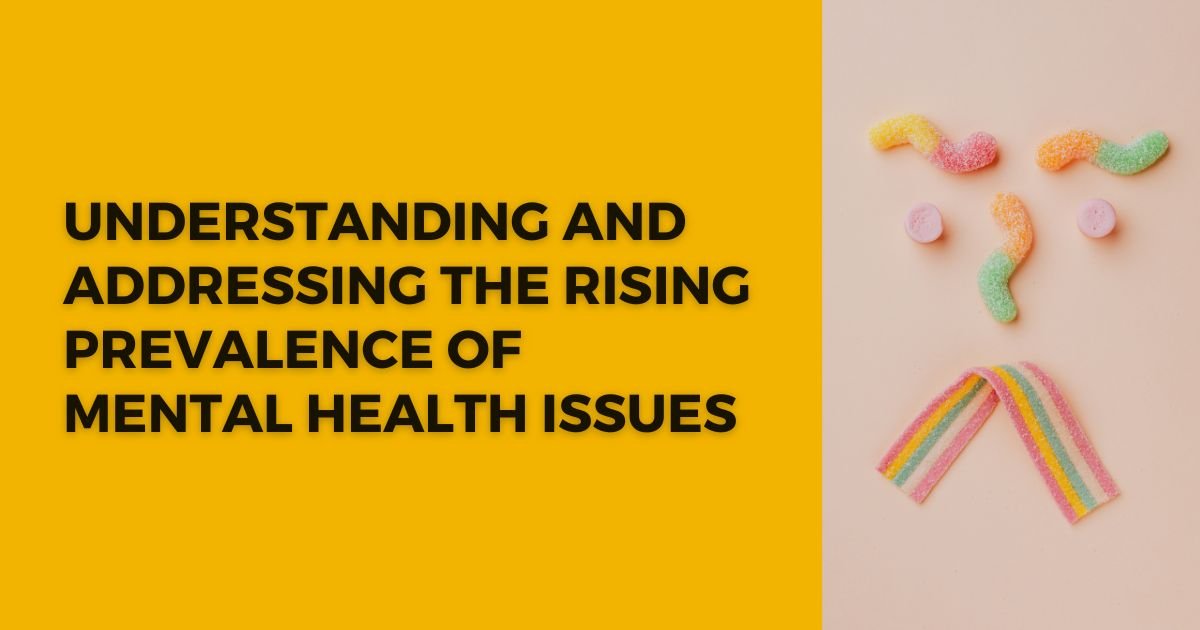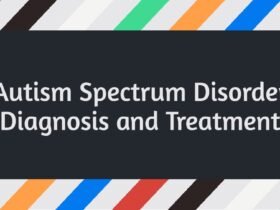Mental health is a complex and multifaceted aspect of our well-being. While it’s not always easy to pinpoint an exact moment when mental health issues begin, understanding the factors that can contribute to their development can shed light on this important question.
Table of Contents
Challenges faced when dealing with Mental Health Issues
Dealing with mental health issues can be challenging, both for the person experiencing them and for their loved ones. Some of the challenges that may arise include:
- Stigma: There is still a significant stigma surrounding mental health issues, which can make it difficult for people to seek help or talk openly about their experiences.
- Access to care: Access to mental health care can be limited, particularly for those who live in rural or underserved areas, lack insurance, or face other barriers to care.
- Finding the right treatment: Mental health treatment can be complex and finding the right treatment can take time and trial-and-error. It can also be difficult to find a mental health professional who is a good fit.
- Managing symptoms: Mental health issues can cause a range of symptoms, such as anxiety, depression, and psychosis, which can be difficult to manage and may impact daily life.
- Social support: Social support is important for managing mental health issues, but it can be challenging for people to find and maintain meaningful connections with others.
- Self-stigma: Even if others are supportive, people with mental health issues may experience self-stigma or shame about their condition, which can make it difficult to seek help or engage in treatment.
Despite these challenges, it’s important to remember that mental health issues are treatable, and with the right care and support, many people are able to manage their symptoms and lead fulfilling lives.
When do Mental Health Issues starts?
Mental health issues can start at any point in a person’s life, from childhood through adulthood and into old age. Some mental health issues, such as autism spectrum disorder and attention deficit hyperactivity disorder (ADHD), may be diagnosed in childhood, while others, such as depression and anxiety disorders, may emerge in adolescence or adulthood.
Many mental health issues are the result of a combination of genetic, environmental, and psychological factors. For example, a person may have a genetic predisposition to developing a mental health condition, but environmental factors such as trauma or chronic stress may trigger the onset of symptoms.
It’s important to note that mental health issues can also develop in response to specific life events, such as a traumatic experience, a major life change, or a chronic illness. Additionally, some mental health issues, such as bipolar disorder and schizophrenia, may not become apparent until early adulthood.
If you or someone you know is experiencing symptoms of a mental health issue, it’s important to seek professional help. Mental health professionals can provide diagnosis, treatment, and support to help manage symptoms and improve quality of life.
Why are Mental Health Issues increasing?
There is no one single reason why mental health issues are increasing, but there are a number of factors that may contribute to this trend. Some possible factors include:
- Increased awareness and recognition: There is greater awareness and recognition of mental health issues today than in the past, which may mean that more people are seeking help and getting diagnosed.
- Changing social and economic conditions: Changes in society and the economy, such as increased stress at work, social isolation, and economic insecurity, may contribute to mental health issues.
- Trauma and adversity: Exposure to trauma or adversity, such as childhood abuse or neglect, may increase the risk of developing mental health issues later in life.
- Biological factors: Mental health issues can have a biological basis, and changes in the environment, such as exposure to toxins or changes in diet, may contribute to the development of these conditions.
- Substance use: Substance use, including alcohol and drugs, can increase the risk of mental health issues, particularly in those who are predisposed to these conditions.
- COVID-19 pandemic: The COVID-19 pandemic has had a significant impact on mental health, with many people experiencing increased stress, anxiety, and depression as a result of the pandemic and its associated social and economic disruptions.
It’s likely that a combination of these factors, as well as other factors not listed here, are contributing to the increase in mental health issues. However, it’s important to note that while the prevalence of mental health issues may be increasing, there are also many effective treatments and strategies for managing these conditions.
Why do I have Mental Health Issues?
There is no single answer to why someone may have mental health issues, as the causes of mental health issues can be complex and varied. Mental health issues can arise from a combination of genetic, environmental, and lifestyle factors, and can affect anyone regardless of age, gender, race, or socioeconomic status.
Some potential factors that may contribute to mental health issues include:
- Genetics: Mental health issues may run in families, and certain genes may increase the risk of developing certain conditions.
- Trauma: Exposure to trauma, such as abuse, neglect, or violence, can increase the risk of developing mental health issues.
- Environmental factors: Exposure to environmental toxins, such as lead or pesticides, may increase the risk of developing mental health issues.
- Substance use: Substance use, including alcohol and drugs, can increase the risk of developing mental health issues.
- Chronic stress: Chronic stress, such as that caused by work or relationship problems, can increase the risk of developing mental health issues.
It’s important to remember that mental health issues are not a sign of weakness, and seeking help is a sign of strength. If you are experiencing mental health issues, it’s important to reach out for support and speak with a mental health professional who can help you identify the underlying causes and develop a treatment plan. With the right care and support, many people are able to manage their symptoms and lead fulfilling lives.
If you’re looking to explore more about mental health and well-being, don’t hesitate to click here. You’ll discover a plethora of insightful articles that can help you on your journey towards better mental health. Take care of yourself and keep reading!
Why are there more Mental Health Issues now?
There are several potential reasons why mental health issues may appear to be more prevalent now than in the past. Here are a few possible explanations:
- Increased awareness: As mental health issues become less stigmatized, people may be more likely to seek help and talk openly about their experiences. This increased awareness may make it seem like mental health issues are more prevalent than in the past.
- Social and economic changes: Rapid social and economic changes, such as globalization, urbanization, and the shift towards a service-based economy, can create new stressors and challenges that contribute to mental health issues.
- Lifestyle changes: Changes in diet, exercise, and sleep patterns may contribute to mental health issues. For example, a diet high in processed foods and sugar may contribute to depression and anxiety.
- Environmental factors: Exposure to environmental toxins, such as pollution or lead, may contribute to mental health issues. Additionally, traumatic events such as natural disasters or violence can contribute to post-traumatic stress disorder (PTSD) and other mental health issues.
- Technology: As mentioned previously, the way people use technology can contribute to mental health issues.
It’s important to note that mental health issues have likely always been present to some degree, but they may have been stigmatized, misunderstood, or not diagnosed in the past. While there may be factors contributing to an apparent increase in mental health issues, it’s important to continue to research and address these issues in order to promote better mental health and well-being for all.
If you’re looking to explore more about mental health and well-being, don’t hesitate to click here. You’ll discover a plethora of insightful articles that can help you on your journey towards better mental health. Take care of yourself and keep reading!














I must commend the author for their engaging writing style. The article is not only informative but also a pleasure to read. The storytelling approach and relatable examples kept me hooked from start to finish. Well done!